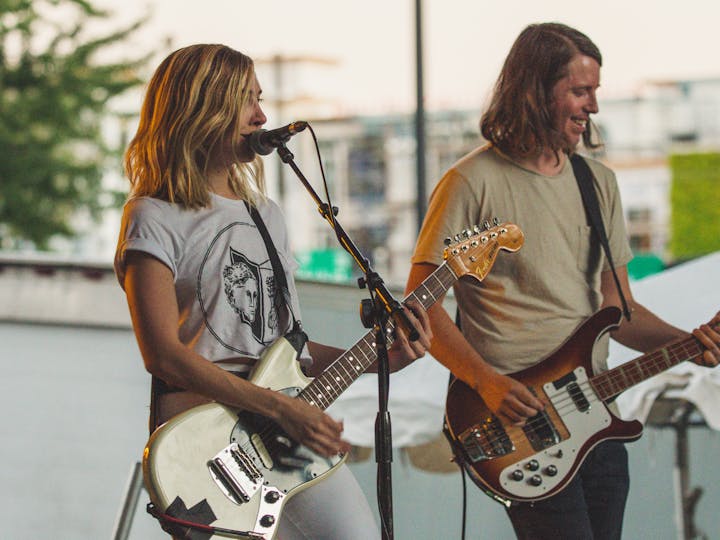For aspiring and working musicians alike, geography can quietly shape careers. Some cities naturally pulse with opportunity, creativity, and support systems that make it easier to turn music from a passion into a sustainable profession. While there’s no one-size-fits-all destination, it’s clear that certain cities rise above the rest.
A recently published report on the best cities for musicians highlights places in the U.S. where live music, affordability, and opportunity converge. It’s worth a look if you’re considering a relocation or curious about where your musical path might flourish.
But what exactly makes a city “great” for musicians? It turns out, the answer goes beyond the size of the local music scene or how many bars book open mics. From economic realities to community culture, let’s explore the key traits that turn cities into fertile ground for musical careers.
A Healthy Music Economy
One of the most reliable indicators of a supportive music environment is a city’s investment in the arts. Municipal policies, grants, and nonprofit funding help create stable infrastructure for musicians to perform, record, and teach.
According to the latest research from Americans for the Arts, nonprofit arts and culture organizations, together with their audiences, generate over $150 billion annually in economic activity in the U.S. This spending supports 2.6 million jobs and creates nearly $30 billion in tax revenue. Such numbers highlight the vital economic role the arts play in local communities and why city support matters deeply for musicians’ livelihoods.
Cost of Living Matters
Talent and culture can’t survive on passion alone. For independent musicians especially, the cost of rent, groceries, and transportation often dictates whether they can afford to stay in a city long enough to build a fan base.
Research from the National Endowment for the Arts shows that nearly 63% of musicians supplement their income with non-music related work, often because of the high cost of living in major cities. That’s one reason why cities like Austin and Portland continue to be hotbeds for independent music. Despite rising costs, they still offer better affordability than major metros like New York or Los Angeles. And in nearby communities, events held in parks in West Linn in Oregon, such as the beloved Music in the Park series, show how smaller towns also support local music through free outdoor concerts and vibrant community gatherings.
Being able to work a flexible side job while pursuing gigs or building a digital audience is a privilege not afforded in every urban center.
Community and Collaboration
Cities with a collaborative artistic culture tend to generate more innovation and long-term sustainability for musicians. Strong peer networks, cross-genre collaboration, and accessible rehearsal or recording spaces are key.
In cities like New Orleans, Minneapolis, and Philadelphia, this community-centric approach to music creation is deeply ingrained. Musicians don’t just perform – they teach each other, lift each other up, and often grow together in collectives.
Accessibility to Performance and Studio Opportunities
The number of venues, festivals, and recording studios in a city can dramatically impact a musician’s ability to get discovered, collaborate with others, and refine their craft.
The World Intellectual Property Organization (WIPO) highlights that a vibrant music economy drives value for cities in several important ways, including job creation, economic growth, tourism development, and artistic vitality. Furthermore, strong music communities attract highly skilled young workers in all sectors who prioritize quality of life, thereby drawing broader business investment. Cities that offer diverse opportunities for performance and studio access help musicians develop their careers while supporting local economic growth.
Having regular access to performing gigs not only helps pay the bills but sharpens live performance skills and builds fan loyalty in real time.
Planning for the Long Run
Even in the most opportunity-rich cities, music careers are often unpredictable. That’s why it’s important for musicians to think long-term about health, finances, and legal protection. One essential step is securing proper coverage, especially when performing, touring, or teaching lessons.
Musician insurance helps safeguard gear, cover liability at performances, and provide peace of mind during uncertain moments. With so many musicians operating as freelancers or small business owners, this kind of protection isn’t a luxury—it’s a necessity.
Final Notes
No two music journeys are the same. But for those trying to turn their craft into a career, the city they choose to call home can open or close doors. Whether it’s the rich musical history of New Orleans, the genre-bending experiments in Chicago, or the grassroots culture of Nashville, the best cities for musicians offer far more than stages. They offer support, collaboration, and a sense of possibility.
So if you’re wondering where your next musical chapter might unfold, start by considering what you need most. Is it community? Affordability? Studio access? A mix of all three? There’s no perfect city, but knowing your priority(s) will help you find the one that helps your music thrive.


